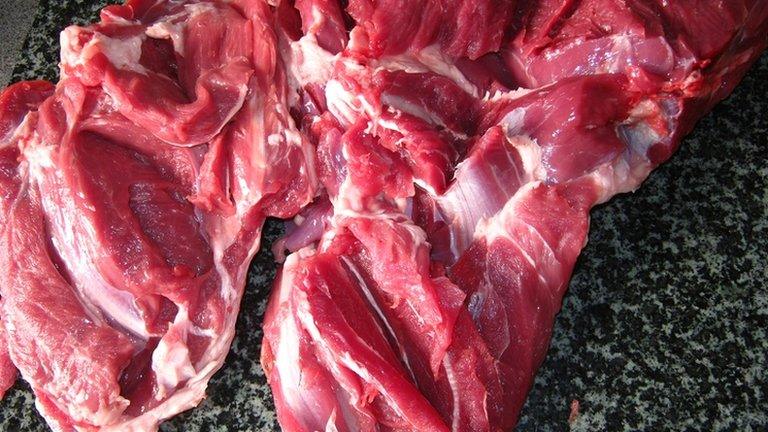Farmers hold crisis summit over 'critical' lamb price fall
- Published
Dylan Morgan, deputy director and head of policy at union NFU Cymru, speaks to BBC Radio Wales
Farmers from Wales have joined a crisis summit with a warning the price they get for their lamb has reached a critically low level.
They claim their share of lamb sold on the shelves has dropped from 60% to 50% in the last year.
There has already been one protest outside a supermarket with farmers unhappy New Zealand lamb is being sold at the height of the Welsh lamb season.
Retailers said they wanted customers to have high-quality, affordable produce.
The National Farmer's Union (NFU) has organised Monday's meeting in London, which is also discussing milk prices.

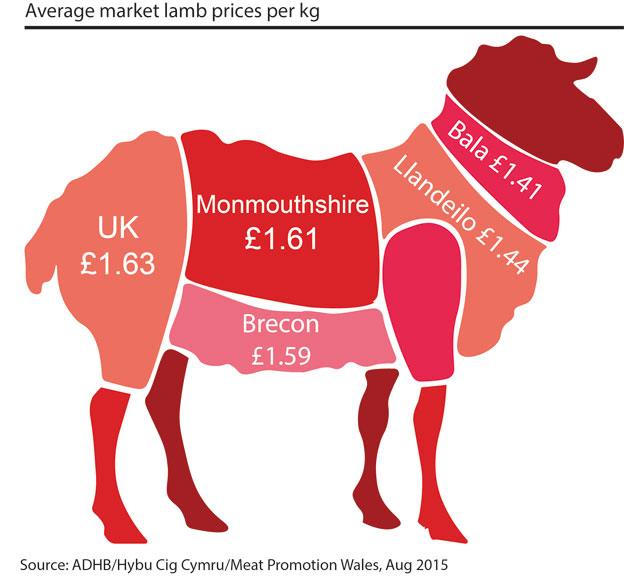
Some of the average prices for livestock at markets recently
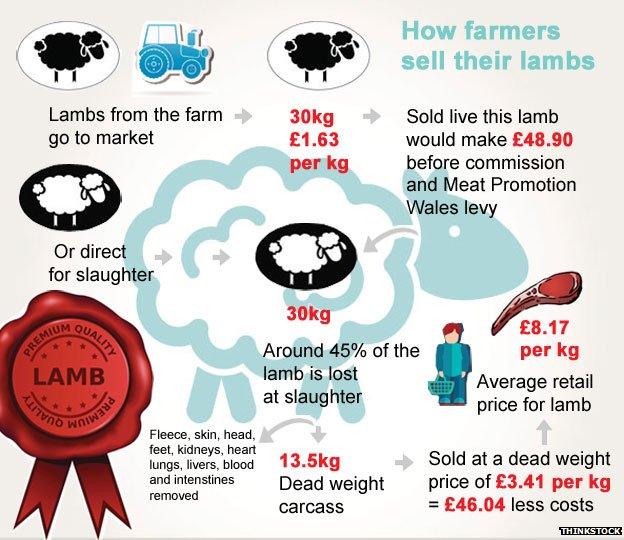
How farmers sell their lambs - with example weights and recent average prices

The union wants to persuade supermarkets to change their approach, and it also wants the support of politicians at home and in Europe.
Tesco and Asda supermarkets are accused by farmers of stocking cheaper New Zealand lamb, which is leading to a fall in the price paid for lamb per kilo here.
Dylan Morgan, NFU Cymru Head of Policy, said: "There is a range of factors - the strong pound has affected our ability to export abroad, there are the issues with Calais, historically a significant proportion of our lamb goes to southern Mediterranean countries, where the financial crisis has affected their ability to buy our product.
"But the fact that New Zealand lamb is flooding into our market is a significant factor when there's a plentiful supply of the best quality lamb in the world available on their doorstep."

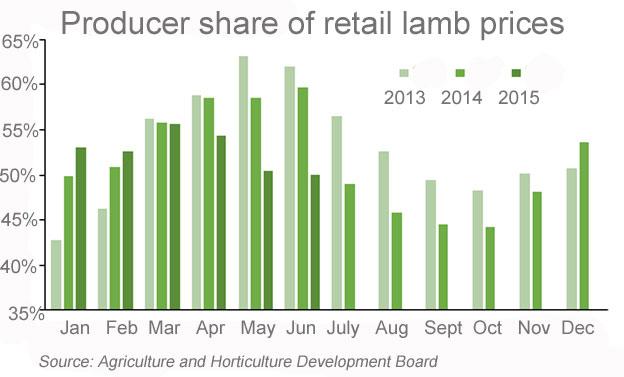
Farmers say this shows how they are getting less of a share of lamb sold in the shops
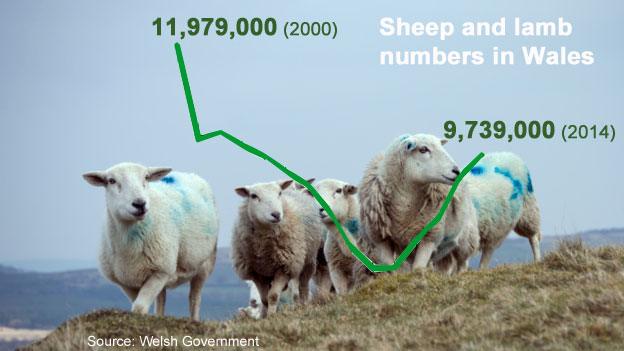
The number of sheep - and farmers - is falling

Unions say the gap has widened between what the farmer is getting and the price on the shelves.
Tesco said most of lamb it sold is predominantly Welsh and British while fresh meat counters only sell British lamb.
"We recognise the quality of British and Welsh lamb and we are proud to be the biggest buyer of it," said a spokeswoman.
"We clearly label the origin of our lamb and aim to give customers a choice to buy British, especially as we are in the British season.
"New Zealand lamb is recognised by customers as also being a good quality and it helps keep it affordable for the customer."

Farmer Jonathan Huntley is predicting a £15-20,000 loss this year at current prices
Farmer Jonathan Huntley, based near Pontypridd, estimates he could lose up to £20,000 this year if prices remain the same.
"All the lambs we're selling are well below the price of production.
"It's a substantial loss and whether we can sustain that going forward, only time will tell."
He said New Zealand farms have an advantage of being so large and to be able to compete he would need to expand his land.

The NFU is also concerned about the continuing cuts in the price of milk paid to dairy farmers.
Morrisons said it tried to pass on lower prices to customers where possible.
Asda said it was "committed" to sourcing British products first.
The Welsh government said it was supporting the farming industry and an "ongoing programme of engagement with supermarkets".
- Published10 August 2015
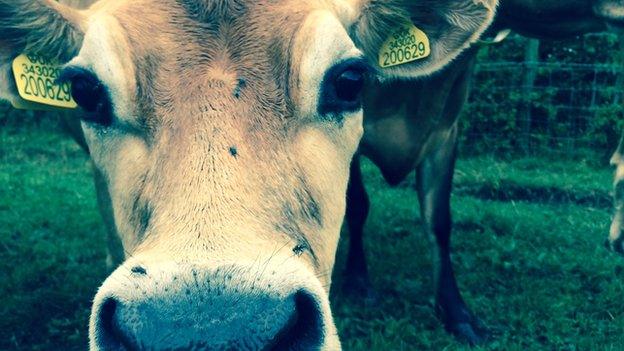
- Published10 August 2015
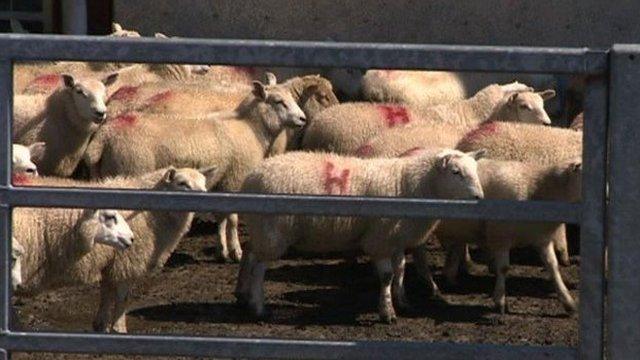
- Published30 July 2015
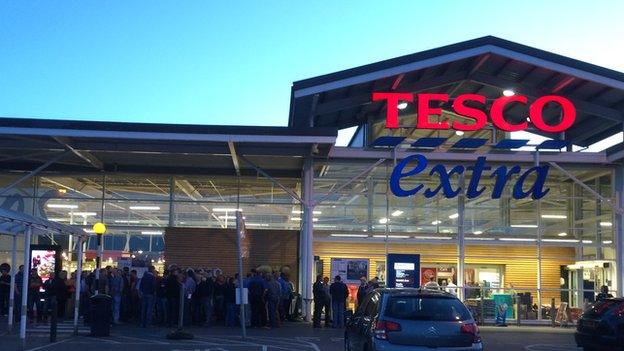
- Published31 July 2015
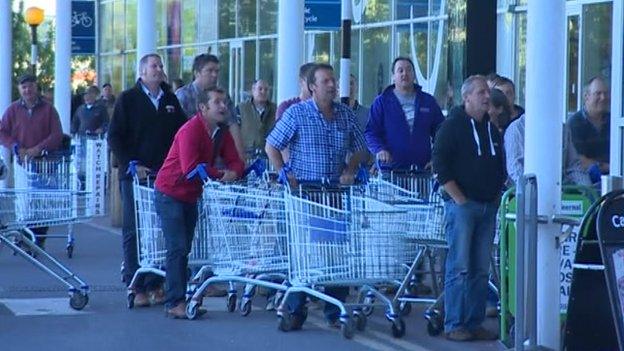
- Published19 January 2013
